287 products
- White Wine
- Garnacha Blanca
- Natural, Sustainable, Vegan-Friendly
- Dry
- Medium Bodied
- 750ml
- 14.2% alc./vol
About the Winery
Bodegas Puiggròs
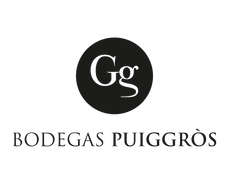
Since 1843, the Puiggros family has been producing wines from their own vines in the Odena region of Catalunya for the family and close friends. Over generations they had come to realize that their vineyards and techniques were something worth sharing with the world. A sincere dedication to the terroir in their zone and the indigenous varieties that grow there, allows them to constantly discover ways to unlock all of the magic that lies within their land.
Starting with conscious and clean farming in the vineyard, they hand-harvest only the best fruit for their production, and ferment each vineyard separately in varying vessels to accentuate what the vines have to show; some in stainless steel, and many in clay amphora of differing sizes. All the while seeing very little sulfur use (if any) until bottling. Puiggros is pushing the quality of northeastern Spain's wines forward, and doing so in a clean and unique way.
Press Reviews
Wine Align
92 points - John Szabo
A very pretty, floral, clean and fresh example of white grenache, indeed much fresher and brighter than many in the amphora-aged genre, a future classic. I love the gentle white and yellow-fleshed fruit, the green apple freshness, the lemon blossom and meadow flowers. Acids are bright and crunchy, and 14.2% alcohol comes across as more like 12.5. The finish lingers terrifically on sapid, saline freshness. A sheer joy to drink; best now-2024. Tasted January 2021.
92 points - Michael Godel
A warm and generous white grenache with alcohol reflecting ripeness ans style, from a family growing grapes forDrink 177 years but only producing commercially for the past dozen. In this case their local Catalonian garnatxa blanca is raised at heights (600m) on limestone and clay, then sent t0 800L sized clay amphora. Comes away clean, spirited, juicy and pure as white garnatxa driven snow. Just pink enough to vin gris it up while in delivery of the natural and curated amphora experience. Just bloody delicious. Drink 2021-2025. Tasted January 2021.
- White Wine
- Chenin Blanc
- Organic, Vegan-Friendly
- Dry
- Full Bodied
- 750ml
- 13.50% alc./vol
About the Winery
Château de Parnay
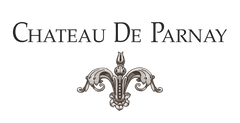
Château de Parnay is the flagship of the AOC Saumur Champigny. The property is located along the Loire river, classified as UNESCO World Heritage, on the most reputable clay and limestone terroirs of the appellation. The historic property was taken over by Mathias Levron & Régis Vincenot in 2006 with the aim of restoring the nobility of this special place.
Drawing their strength from the authenticity of their values, they now cultivate 50 hectares of vines with the aim of producing exceptional wines in a way that respects the environment. They have been certified organic since 2013 and are about to be certified biodynamic too.
The Clos of Chemin des Murs is the jewel of the property! Coming from the imagination of it's orginal owner, Antoine Cristal, this Clos was built, planted and cultivated according to an unprecedented technique. On this half hectare of Chenin Blanc, each vine was planted on the north face of a stone wall. Through a hole in the stone the vine crosses through the wall and allowing the grapes to grow facing the southern sunshine. The vine is said to have its 'foot in the cool and belly in the sun'.
Press Reviews
Wine Align
92 points - David Lawrason
This is from a leading Saumur producer of Loire chenin blanc with vines planted in calcerous clay soils near the Loire River outside of classical town. It is both rich and delicate, a juxtaposition I find in some of the world's best whites. It is not however an intense, flashy, acid and mineral driven chenin. Fermentation in neutral barrels has created a pale gold hue and softened the nose to gentle honeyed, spicy state along with ripe pear/apricot jam fruit. It is medium-full bodied, smooth and dry, almost creamy, with the grape's acidity and minerality arriving more on the finish. The complexity and length are excellent, with a touch of wood spice and bitterness as well. Tasted August 2022
94 points - John Szabo
2019: This leads with a terrific nose very much in the varietal/regional idiom, honeyed, floral, apple and lemon zest-scented, complex and exotic, not to mention stony. The palate displays a similar level of poise and composure, cool, transparent yet with a heavy freight of flavour , and terrific length. This is really quite extraordinary wine, delicious now, but surely capable of a decade or so in the cellar. Top notch. Tasted March 2019.
93 points - Michael Godel
2019: The rare and elusive 100 per cent chenin blanc from Samur makes full use of clay-calcaire-tuffeau soils for this dry and piqued white wine. So crunchy and expressive with an expansive character that fills the mouth by making contact withy every nerve and pour. Benchmark and controlled explosive example, rare or otherwise. Drink 2020-2025. Tasted March 2020.
91 points - David Lawrason
2019: It is rare to come across fine Saumur chenin, a central Loire Valley appellation overshadowed by Vouvray. This is mid-weight, dry and quite firm classic with a fairly generous nose of pear, spice, vague fresh herbs and wet stone. It becomes quite dry and somewhat grapefruity bitter on the finish, trailing solid minerality as well. Very good to excellent length. Tasted March 2020.
- White Wine
- Olaszrizling, Pinot Gris, Riesling, Sauvignon Blanc
- Organic, Sustainable, Vegan-Friendly, Volcanic
- Light Bodied
- 750ml
- 12% alc./vol
About the Winery
Gilvesy Pincészet
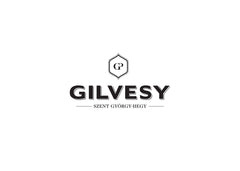
Hungarian expat Róbert Gilvesy moved back to his homeland from Canada, and began building the Gilvesy winemaking empire on the former Esterházy estate on Szent György Hill. Thanks to years of hard work, the Hegymagas-based facility now includes a modern building complex and about 13 hectares of vineyards, in addition to being the home of the family. The area is shaped by 6 million years old volcanoes, where indigenous and international varieties grow organically.
Robert’s absolute admiration for nature and the terroir translates into an immense respect for the environment. By farming using organic practices, the soils and the vines stay healthy. In the winery, by letting nature take its course without controlling the processes, and using local resources, such as Hungarian oak barrels, Gilvesy promotes and protects the Balaton region.
Press Reviews
Wine Align
91 points - Michael Godel
The blend in 2021 is olaszrizling (a.k.a. welschriesling), riesling and sauvignon blanc with pinot gris no longer involved. No doubt a botanical aspect ups the complexity game away and beyond the simple norms of white blends marked by citrus and stone fruit. They are in the mix but the herbal tonic and fine bitters elevate the cuvée to speak rightly and spritely for Balaton, the Szent György Hill and Robert Gilvesy’s oeuvre. This wine is an institution now and deserves plenty of attention. Drink 2023-2026. Tasted March 2023.
91 points - Megha Jandhyala
Situated near an ancient dormant volcano, Gilvesy grows native grape varieties organically and sustainably in volcanic soils. This blend of olaszrizling, pinot gris, riesling, and sauvignon blanc is subtly reductive and mineral, with notes of freshly cut-grass, juicy grapefruits and lemons, peaches, and crunchy pears. It feels fleshy and rounded, but refreshing on the palate, with a long, pleasantly grippy finish. I like the layers of flavours here and the succulent texture. This wine is ready to drink and vegan-friendly. Tasted March 2023.
90 points - John Szabo, MS
Gilvesy's 2021 Balatoni cuvee is the customary blend of welschriesling, riesling and sauvignon blanc, crafted in an appealingly reductive, grapefruit pith and peel-inflected style, tightly wound and bone dry, mineral and fresh. I love the saltiness on the palate and the succulent acids that draw additional sips. Crunchy, fresh, lively, drinking now or hold short term. Tasted March 2023.
- Red Wine
- Grenache, Mourvèdre / Monastrell, Syrah
- Biodynamic, Natural, Sustainable, Vegan-Friendly
- Dry
- Full Bodied
- 750ml
- 15% alc./vol
About the Winery
Domaine Viret
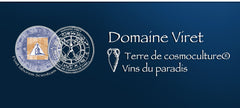
In a magical place steeped in history, Saint-Maurice, in the Rhone Valley. Advocates of the principles of organic and biodynamic agriculture, the Viret family has chosen to employ a particular form of natural viticulture throughout their estate. Known as “cosmoculture®”, this is based on cosmotelluric exchanges. Everything is organised in such a way that both vines and wines are able draw on their own natural defences.
Work in the vineyards focuses on reorganising the magnetic field and on the application of homeopathic and naturals preparations made from rocks and plants that are often found in the vineyards. Alain, Philippe's father, built the winery on an ancient Roman site around an underground spring which they believe energises the vineyards and the winery.
- White Wine
- Chardonnay
- Sustainable, Vegan-Friendly
- Dry
- Residual Sugar: 2 g/l
- Medium Bodied
- 750ml
- 13.00% alc./vol
About the Winery
Domaine Baud Père et Fils

The history of Domaine Baud dates back to 1742, and it wasn't until 1950 when René Baud, the 7th generation, rebuilt the vineyard which had suffered from the phylloxera crisis and two World Wars.
Starting with only 4 hectares, the vineyard progressively expanded to 20 hectares with the help of successive generations. Now, managed by siblings Clémentine and Bastien, the 9th generation, the estate continues to flourish and grow, with a strong commitment to sustainable viticulture and preserving the traditions and style that makes the wines of the Jura so unique and incredible.
The estate achieved the Terra Vitis certification in 2014 for its eco-friendly work and environmental preservation.
Press Reviews
Wine Anorak
94 points - Jamie Goode
Powerful, lively and spicy with concentrated tangy citrus and pear fruit with some saline notes and tangy apple and lemon on the finish. Lovely intensity here with some crystalline citrus fruit.
Wine Align
93 points - David Lawrason
This is not your everyday chardonnay! In the Jura region of east-central France in the lower foothills of the Alps, there is tradition of oxidative winemaking, some under a layer of flor, as occurs in some Spanish sherry. As a result of the advance maturation this pours medium gold. The nose is dominated by classic hazelnut, honey, barley sugar sourdough and anise, around the ripe tropical fruit. It is medium weight, very smooth, well balanced and focused, with excellent length. More lithe lemon notes enliven the finish. There is a touch of tannin. Tasted December 2022.
91 points - John Szabo, MS
A pure chardonnay made in the traditional, oxidative Jura style under flor, not unlike fino sherry, but here the oxidation is more pronounced. Expect bruised apple and cold Orange Pekoe tea, cold wheat toast with honey, lemon pith and zest, and much more in an unusual but complex expression. The palate is mid-weight, showing more fruit and less oxidative qualities than the nose, succulent acids, and good to very good length. I must say, I like the salinity and savoury aspects, the lingering flavours and authentic but unimpeachable winemaking. There's fantasy here; be sure to decant before serving; best now-2026. Tasted December 2022.
91 points - Michael Godel
Clémentine Baud took over the family estate with her brother six years ago. The first father to daughter transition and with many to follow. The estate dates back to 1742, started by Jean-François. They farm 25 hectares, Clémentine’s father started with five and grew to 19 hectares when he retired. Picking for Sparkling now seems to happen in August, save for the difficult 2021 vintage. In 2017 70 per cent of the harvest was lost to the frosts, 50 in 2019 and 80 in 2021. "We have over 40 old varieties in the Jura, important for diversity, including those not allowed under the rules of the AOC," tells Clém. The fruit for Cuvée Flor is grown at a latitude of 46.73 North and though very much a cool climate place for chardonnay the threats of warmer winters and seasonal frosts has wreaked havoc over the past 10 years. A chardonnay of remarkable lustre, concentration and purity, worked by way of oxidative aging, low alcohol expectation starting at 12 and finishing no higher than 14 to 14.5. A floral chardonnay, not one related to yeast and surely a pretty in Jura wine. From the younger vines, phenolic and hinting towards though remaining clear of emerging boozy. Filled with flavour, hazelnut and praline, peach and yellow plum. A world of its own. Drink 2022-2025. Tasted July 2022.
- Red Wine
- Listán Negro
- Sustainable, Vegan-Friendly, Volcanic
- Dry
- Medium Bodied
- 750ml
- 13.5% alc./vol
About the Winery
Viñátigo

Juan Jesús is a proud native of Tenerife and the fourth generation of growers. During the thirty years that he's overseen Bodegas Viñátigo, he has considerably increased its holdings, planting varieties that he and his team recuperated from near extinction.
Driven by passion and love for his homeland, Juan decided to revive and work to save the native grape varieties that were brought to the Canary Islands by the conquers back in the 15th century and that had survived on the islands for centuries. He is a hero of contemporary Canarian viticulture. The wealth of knowledge that his work has created has helped underpin the significant expansion of wine styles that are now available throughout the archipelago, and his wines have achieved a calibre of class that many doubted the Canaries would ever produce again. (The Epic Wines of the Canary Islands, written by Santo Bains).
Press Reviews
Wine Align
91 points - David Lawrason
From pre-phylloxera vines grown at high altitude in volcanic soils, this is a mid-weight, quite smooth red with a generous nose that reminded me of smoke and tar, with wild chokecherry, pomegranate fruit and herbs. Flavours are a bit unusual and sour-edged yet the texture and tension are smooth and appealing. Tannins are quite mild; the length is excellent. Tasted December 2020.
91 points - Michael Godel
The volcanic midlands of Tenerife’s northwest section is THE place on the Canary Islands for growing and producing the highest quality of listán negro. The fourth and fifth generations of Juan Jesús’ family are the custodians of these pre-phylloxera vines at 500-1000m and the wines they gift. Just a kiss of oak does little to adulterate the precocious sentimentality and unknowable delight for a wine that you warm up to without knowing how or why. By now and with the 2019 vintage this unique red has come into its own at a perfect knife’s edge volatility and discreet if sumptuous behaviour. A must try and twice, each year for the next three to six. Drink 2020-2025. Tasted December 2020.
- Rosé Wine
- Cabernet Franc, Pinot Noir
- Sustainable, Vegan-Friendly
- Dry
- Light Bodied
- 750ml
- 12.0% alc./vol
About the Winery
Leaning Post
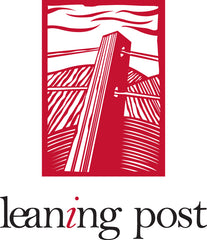
A leaning post is what you find at the beginning of a row of grapes, anchoring the wires that are the frame-work for growing grapevines. It is the beginning of an obsession to translate a time and place into liquid. Leaning Post wines take you to that beginning by finding small, unique plots of land in Niagara and putting them in bottle. Because after stripping away all the fancy buildings and high-tech equipment you are left with a place on this earth that grows wine unlike any other. When you taste that in a glass you just know it. Nadia and Ilya have had to rely on the support of family, friends and financial institutions to make the dream of owning a winery a reality. Leaning Post began as a virtual winery and is so proud to now have the quaint tasting room at 1491 Hwy 8 on their home property in Winona, Ontario.
Ilya and Nadia are the brains and passion behind Leaning Post Wines. It started with a dream to take unique, interesting single vineyard blocks in Niagara and turn them into distinctive, terroir driven wines. Nadia and Ilya first met in their hometown of Winnipeg, MB where their passion for wine and each other was born.
Ilya has been a winemaker in the Niagara Region for the last 17 vintages working at Daniel Lenko Estate Winery, Foreign Affair and now at Leaning Post Wines. Ilya is also a consulting winemaker at the Good Earth Winery. Ilya’s true passion in life is to make world renowned wines from Niagara that really showcase the distinct terroir that Niagara offers.
- Vermouth Wine
- Carignan, Grenache
- Natural, Organic, Vegan-Friendly
- Dry
- Full Bodied
- 750ml
- 17% alc./vol
About the Winery
Domaine Frédéric Brouca

Frédéric grew up in Normandy and met his Canadian wife Elaine at university in Lille, Northern France. They live a nomadic lifestyle (Canada, India, Singapore and USA) though Frédéric spends about half of his time in Faugères. Since early age, Frédéric had a calling for farming and the fierce desire to become a winegrower. After completing a Masters Degree in Finance in 2001, Frédéric went back to college for a Sommelier diploma and started his career as a Burgundy wine broker.
In late 2012, Frédéric and Elaine were fortunate to take over 25 acres of old vines in Faugères, organically farmed for twenty years and deeply rooted in schist soils.
2013 was the inaugural vintage for Domaine Frédéric Brouca. In his modest winery in the village of Laurens, Frédéric is creating a new vision for Faugères wines; fresh, vibrant and made without artifice. Nothing revolutionary, simply returning to our grandparent's ideology of farming and winemaking to craft 'Vins Vivants'. The Faugères Appellation is in the heart of Languedoc in the Hérault department. Here, winemaking dates back to the Greek times and was developed during the Roman Era. It wasn't until the early 1900's, however, that the wines became more widely known for its unique schist soils and moderate Mediterranean climate. These villages are heavily reliant on wine as an important part of their culture and economy.
The area is stunning with mountain views and close proximity to the Mediterranean Sea (20 miles / 30 kms). Faugères has a long history of responsible farming. It boasts the highest percentage of organic vineyards for any AOC in all of France with almost 50% of farmers making the choice.
- White Wine
- Sauvignon Blanc, Sauvignon Gris
- Organic, Vegan-Friendly
- Dry
- Medium Bodied
- 750ml
- 13% alc./vol
About the Winery
Réva
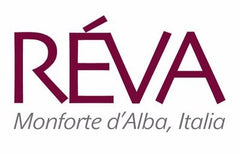
Réva is a winery based in Monforte D’Alba, within the Langhe area, in Piedmont, west northern Italy. Its aim is to bring the most brilliant young people of the area together, entrusting them with the task of expressing themselves in the most creative and professional way possible. This is Réva’s Wave, a dynamic team that represents the new Langhe generation, in constant communication with tradition, without the fear of reinterpreting it.
Today the vineyard sites which spread over 4 villages, Monforte D’Alba, Serralunga D’Alba, Novello and Barolo are all managed directly with the entire agronomic work done manually. Strong sustainable vineyards conduction, certified organic, they believe that their biggest challenge is not inventing anything but just define and express the beauty of the land where they live.
Behind every glass of wine there is an expression, expression of terroir, varietal, the varietal is for them everything, indigenous, they speak of the land and, last but not least, passion for what they do. Simply as that.
- Red Wine
- Corvina, Rondinella
- Sustainable, Vegan-Friendly
- Dry
- Full Bodied
- 750ml
- 15.5% alc./vol
About the Winery
Ca' del Monte

Ca del Monte is situated on the hillsides overlooking the village of Negrar, in the heart of Valpolicella. It has belonged to the same family for generations, and is now run by brothers Umberto and Giuseppe Zaconte. There’s nothing fancy about this place. The house and winery are modest - and are attached to a 17th century monastery.
The estate is approximately 50 acres, and its 15-65 year old vines lie on gentle slopes at 800-900 meters. They grow on four soils including clay, limestone, red volcanic soil with red stones, and “Toar,” a green volcanic soil. The vineyards of Ca Del Monte are planted with 20-40 year old vines of Corvina, Rodinella and Molinara grapes that are planted in poor soils that stress the vines and nurture the fruit. All of the farming is done traditionally and non-certified organic.
- White Wine
- Sylvaner
- Biodynamic, Organic, Vegan-Friendly
- Dry
- Light Bodied
- 750ml
- 12.5% alc./vol
About the Winery
Domaine Muré
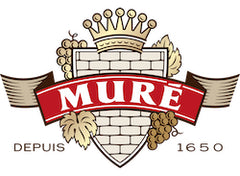
The Muré family has been winegrowers in the region of Rouffach since 1650. In 1935, Alfred Muré, René’s grandfather, bought 32 acres of family-monopole vineyard name Clos St. Landelin, an area that has been described as the best of Alsace Grand Cru since the 7th Century.
Today, René Muré, the 11th generation of the family, along with his children, Véronique and Thomas, are responsible for running their exceptional Grand Cru vineyard and neighbouring terroirs using biodynamic methods. Until this day, they persist in hand-picking every single grape, and focus on crafting wines that preserve the family’s credo. The resulting wines are some of Alsace's finest – powerful, elegant, and age-worthy.
Press Reviews
Wine Align
90 points - Michael Godel
If 2017 was found to exist in the ripe and rich realm for Alsatian sylvaner then wait to you get a taste of what 2018 brings to the varietal table. Also crunchy and finely embittered with a sense of lemons having spent time soaking up neutral spirits. Not your old uncle Sylvain’s sylvaner, no sir, this one’s set up to host the new millennials. An alternative varietal take that will rock the avocado off your toast. Drink 2020-2024. Tasted October 2020.
90 points - David Lawrason
This is a ripe version of sylvaner from a warmer year, with peach fruit, some waxy/oiliness and light caraway and spice. It is medium-full bodied, nicely rich yet firm and dry, with some sense of spritz. There is some pithy bitterness on the finish. The length is very good to excellent. Tasted October 2020
90 points - John Szabo, MS
Clearly ripe, full of fleshy white-fleshed apple fruit and spiced apple chutney, with a vaguely sweet taste, concentrated and generous to be sure. I like the density of flavour and evident intensity, while acids remain firm but ripe and length and depth are excellent. A superior example to be sure, more generous than the mean. Ready to enjoy or hold short term. Tasted October 2020.
90 points - Sara d'Amato
There is a notable elegance to this fresh but fulfilling sylvaner a characteristic tendency of this French/Germanic grape variety. Apple and pear with more apparent sweetness than the previous vintage due to level of ripeness. Highly drinkable, very well defined and a real classic. Tasted October 2020.
- White Wine
- Chardonnay
- Sustainable, Vegan-Friendly
- Dry
- Medium Bodied
- 750ml
- 13% alc./vol
About the Winery
The Farm

“The Farm” is a 10-acre vineyard in Niagara’s Twenty Mile Bench, planted to Pinot Noir. The Neudorf vineyard was originally planted with Pinot Noir in 2000 for Le Clos Jordanne and aptly named “La Petite Colline”, meaning “little hill”, a nod to the gentle slopes that permeate the plot.
The property is rooted in traditions of gathering family & friends, and where Peter and Dora Neudorf call home .
The cellar door opens once a year for guests to taste new releases, and enjoy live music and local food.
- Sparkling Wine
- Sémillon
- Biodynamic, Natural, Organic, Vegan-Friendly
- Dry
- Light Bodied
- 750ml
- 9% alc./vol
About the Winery
Château Barouillet

Chateau Barouillet has been a family business going back at least 8 generations. Vincent Alexis works alongside his father and grandfather to cultivate the land and has moved the winery into organic viticulture, starting to convert the soil in 2010 and fully converting all the vineyards by 2014. In 2020, the obtained their biodynamic certification.
The domaine controls 45 hectares of vines throughout Monbazzillac, Bergerac Pécharmant, and Cotes de Bergerac. Vincent continues to push the biological approach further by working according to the lunar calendar in the vineyards and in the cellar.





























